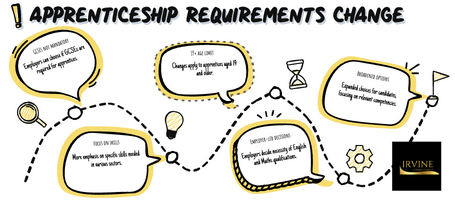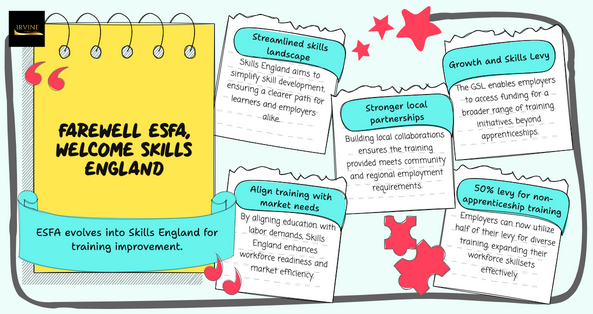8-Month Apprenticeships Are Here
Remember those 12-month minimum duration apprenticeships? From August 2025, they’re dropping to 8 months. Here’s why this matters to you:
- Faster Programme Completion: You can potentially increase your learner throughput by 33%
- More Flexible Delivery: Perfect for sectors like healthcare and social care where you need to get skilled workers out faster
- New Market Opportunities: Think about those employers who previously couldn’t commit to 12-month programmes
💡 Pro Tip: Start redesigning your delivery models now. Consider how you can maintain quality whilst optimising for shorter durations.

English and Maths Requirements: A Game-Changer
Here’s something your employer partners will love: For apprentices 19+, English and Maths requirements are becoming more flexible. Employers get to decide if GCSEs are necessary.
What this means for you:
- Potentially 10,000 more completions annually
- Reduced withdrawal rates
- More focus on sector-specific skills

Farewell ESFA, Welcome Skills England
The ESFA is transforming into Skills England. But don’t worry – this is actually good news. The new body aims to:
- Streamline the skills landscape
- Better align training with labour market needs
- Create stronger local partnerships
Action Point: Start building relationships with your local Skills England representatives as soon as they’re appointed.
The Growth and Skills Levy: Your New Best Friend
This is significant. The Apprenticeship Levy is evolving into the Growth and Skills Levy (GSL). Here’s the golden opportunity:
Employers can now use 50% of their levy for non-apprenticeship training, including:
- Modular courses in digital tech
- Green skills programmes
- Social care training
- Pre-apprenticeship courses
Business Opportunity Alert: Start developing shorter, modular courses now. You’ll be ready to capture this market when the changes take effect.

Higher-Level Apprenticeships: The Plot Twist
Here’s where it gets interesting – Level 7 apprenticeship funding is being restricted. This might seem concerning, but here’s how to pivot:
- Focus on developing strong Level 3-5 programmes
- Create progression pathways within these levels
- Partner with employers to develop comprehensive training solutions
What Should You Do Now?
- Audit Your Current Provision
- Which programmes can be redesigned for 8-month delivery?
- Where can you add modular options?
- Update Your Strategy
- Consider developing new courses for the GSL market
- Plan your English and Maths support differently
- Communicate With Employers
- Help them understand these changes
- Show how you can support their evolving needs
The Bottom Line
These reforms aren’t just changes – they’re opportunities. Training providers who adapt quickly and strategically will thrive. The key is maintaining quality whilst embracing flexibility.
Need help navigating these changes?
Book a complimentary consultation to discuss how to optimise your provision for these new requirements.
